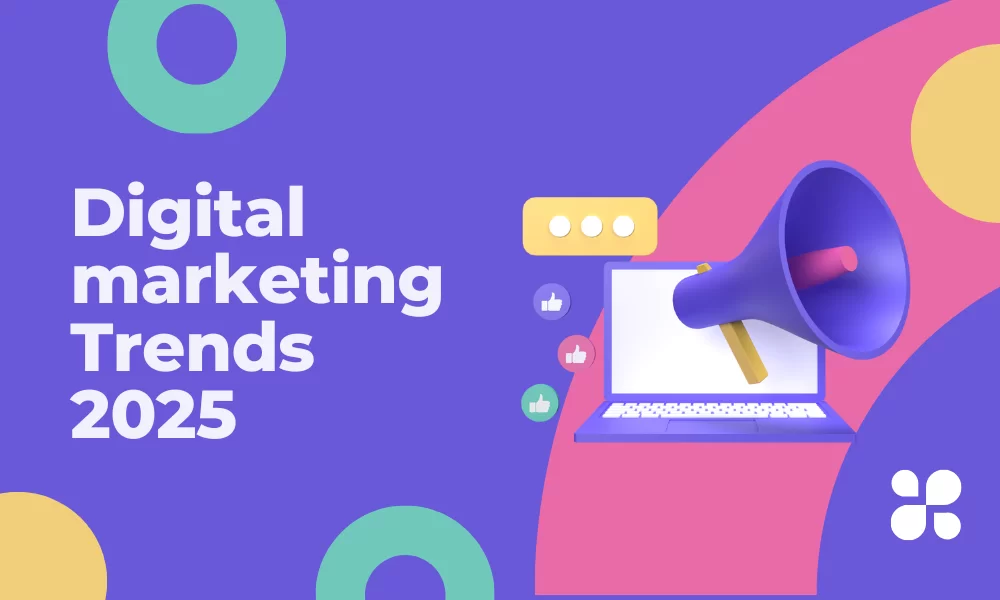
Digital marketing has always been a fast-evolving field, but in 2025, the pace of transformation is faster than ever. Businesses across industries are adapting to shifts in consumer behavior, the rise of new technologies, and changes in data privacy regulations. With the growth of artificial intelligence, automation, and immersive digital experiences, companies are rethinking how to connect with audiences, measure success, and achieve growth. This article explores the state of digital marketing in 2025, key trends, challenges, and opportunities for businesses, including small enterprises and B2B firms.
1. The Changing Digital Environment
The digital environment in 2025 is shaped by several macro forces:
Artificial Intelligence at the Core: AI tools are integrated into almost every aspect of marketing, from personalized recommendations to predictive analytics. Marketers rely on AI not only for automation but also for decision-making, creative design, and customer journey mapping.
Data Privacy and Compliance: With stricter global data privacy laws, businesses must remain transparent and obtain explicit consent for data usage. This has led to the rise of first-party data strategies and advanced consent management tools.
Immersive Experiences: Augmented Reality (AR) and Virtual Reality (VR) have shifted from experimental campaigns to mainstream adoption. Industries such as retail, real estate, and education are actively embracing immersive experiences to boost customer engagement.
Omnichannel Integration: Consumers expect seamless transitions across social media, e-commerce platforms, mobile apps, and offline touchpoints. Businesses that fail to achieve integration risk losing trust and engagement.
2. Digital Marketing Solutions for Small Businesses
For small businesses, competing in such a dynamic environment can be challenging. However, digital marketing has also democratized opportunities. Affordable digital marketing solutions for small businesses enable entrepreneurs to access professional tools and strategies once exclusive to large corporations. Cloud-based analytics, AI-driven content creation, and cost-effective social advertising platforms empower even the smallest companies to reach global audiences.
Data shows that in 2025, over 73% of small businesses allocate at least a quarter of their marketing budget to digital channels, compared to only 42% in 2020. This growth underscores how digital marketing has become the primary driver of visibility and customer acquisition for small enterprises.
3. SEO and SEM in 2025
Search remains one of the most important pillars of digital marketing. In 2025, SEO and SEM strategies are more advanced, data-driven, and AI-enhanced. A modern seo sem company focuses not only on keyword optimization but also applies machine learning to predict search intent, user behavior, and competitive dynamics.
Voice search continues to grow, with 55% of online queries expected to be voice-activated by 2025. Marketers must prioritize conversational content, structured data, and mobile-first design. Additionally, the integration of video content into search results has made visual optimization essential. Paid search advertising has become more personalized, with AI-driven bidding strategies maximizing ROI.
4. Social Media and Community Engagement
By 2025, social platforms are no longer just tools for brand awareness—they are direct revenue channels. TikTok, Instagram, and emerging AI-driven communities support integrated e-commerce and real-time product testing. Community-based marketing, where brands cultivate smaller but more loyal customer circles, is outperforming traditional mass campaigns. Data shows that brands adopting this model achieve conversion rates 3–5 times higher than those relying on broad outreach.
5. The Evolution of B2B Digital Marketing
For B2B companies, digital transformation has also been profound. In 2025, b2b seo companies are leading authority-driven strategies. Unlike B2C, B2B digital marketing emphasizes content depth, thought leadership, and account-based marketing (ABM). Video case studies, interactive webinars, and SEO-optimized whitepapers have become standard practices.
Over 65% of B2B buyers in 2025 state that they rely on online content before making purchasing decisions. This reinforces the crucial role of SEO, content marketing, and analytics in shaping buyer journeys.
6. The Role of Data and Analytics
Data remains the lifeblood of digital marketing, but the approach to analytics has shifted. Predictive and prescriptive analytics are widely used, allowing marketers not only to understand past behaviors but also to anticipate future trends. AI-powered real-time dashboards provide actionable insights, while data visualization tools ensure quick and informed decision-making.
However, the shift toward ethical data use is significant. Transparency, data protection, and consumer trust are no longer optional—they are competitive differentiators.
7. The Rise of Automation and Personalization
By 2025, marketing automation tools can execute highly complex workflows with minimal human intervention. Automated lead nurturing, AI-powered email campaigns, and dynamic websites that adapt to user profiles are now the norm. Personalization has evolved from basic segmentation to highly individualized experiences where every interaction feels unique to the customer.
Reports indicate that personalized campaigns deliver engagement rates 50% higher than generic ones. This trend highlights the importance of investing in the right technology stack to deliver at scale.
8. Key Challenges Ahead
Despite the opportunities, digital marketing in 2025 faces several challenges:
Data Privacy Compliance: Balancing efficiency while meeting diverse regulatory requirements.
Technology Overload: Navigating the crowded Martech landscape without overwhelming resources.
Talent Gap: Skilled professionals in AI, analytics, and creative storytelling remain in short supply.
Ad Fatigue: Consumers are exposed to thousands of digital messages daily, making genuine attention harder to capture.
9. Opportunities for Growth
The future holds vast potential:
Sustainable Marketing: Green branding and ethical practices resonate strongly with younger audiences.
AI Creativity: Beyond analytics, AI is now generating content, designs, and even marketing strategies.
Global Reach for SMEs: Advanced tools and affordable platforms allow SMEs to expand internationally without massive budgets.
Stronger B2B Relationships: Digital channels enable continuous engagement, making long-term partnerships easier to establish and maintain.
The state of digital marketing in 2025 reflects both unprecedented challenges and remarkable opportunities. Businesses that invest in data-driven strategies, embrace AI, and prioritize transparency will thrive in this new environment. Whether it is small enterprises leveraging digital marketing solutions, corporations working with advanced seo sem companies, or B2B organizations relying on specialized b2b seo companies, the future of marketing is more personalized, ethical, and immersive than ever before. In this rapidly changing landscape, adaptability is the most valuable asset. WhatsApp: 86-18326209739. Email: info@fpbundles.com.










